Useful Japanese phrases can make you feel closer to the Japanese natives. You might already know essential words and want some useful phrases in the next step. Fine! You’ve come to the right place. You can find valuable phrases on several occasions you would encounter. So here we go!

Table of Contents
- Basic Greetings (基本の挨拶 = Kihon no aisatsu) – Useful Japanese Phrases
- At A Coffee Shop, Restaurant, Store (お店で = Omise de) – Useful Japanese Phrases
- Weather (天気 = Tenki) – Useful Japanese Phrases
- Condition of people (人の状態 = Hito no joutai) – Useful Japanese Phrases
- Features of people (人の特徴 = Hito no tokucho)- Useful Japanese Phrases
- Shopping (買い物 = Kaimono) – Useful Japanese Phrases
- Conversation with friends (友達との会話 = Tomodachi tono kaiwa) – Useful Japanese Phrases
- Asking someone out (誘う = Sasou) – Useful Japanese Phrases
1. Basic Greetings (基本の挨拶 = Kihon no aisatsu) – Useful Japanese Phrases

The following useful Japanese phrases will get you through almost any situation in Japan. It’s the same with your mother language; greetings are essential in Japan. You want to make a good impression that you remember some core words.
-
- こんにちは (Konnichiwa: Hello)
If you can’t say anything else, say this, and people won’t take you badly.
-
- どうもありがとうございます (Doumo arigatou gozaimasu: Thank you so much.)
You can never go wrong with this one. Whenever you find someone doing you a favor and being helpful to you, don’t spare using it.
You might often hear back “Dou Itashimashite” which means “Welcome” or “Not at all”. This is a good chance to start a conversation.
Also, you can simply say “Arigatou,” which is more casual. They always appreciate you being polite, specifically if you are a stranger to them.
-
- お願いします (Onegaishimasu: Please)
Use this when ordering food, asking for something, or requesting help at the end of your sentence. Adding a smile to your face raises the chances of getting what you want.
-
- すみません (Sumimasen: Excuse me.)
This one is a versatile term that you can use when you want someone’s attention at the station, airport, or restaurant anywhere. Also, it can mean “sorry” when you bump into someone, spill something on the table, or do anything you feel sorry for. But be careful not to use this too often; people might recognize you
-
- はい (Hai: Yes)
Saying yes can also mean “I understand” or “I agree”. It’s interesting, however, to say it like a question raising the ending of the word “Hai?” means “What are you talking about?” You don’t understand what the other says, you use this, but you should know it can carry a sarcastic sense.
-
- いいえ (No: Iie)
Simply it means “No”. Just saying no can leave a negative impression, so adding notes or explanations can help the other party understand why you said no.
-
- ごめんなさい (Gomen nasai: I’m sorry.)
Sumimasen will help you in most situations, but if you do something more serious, like roll over someone’s foot with your suitcase, you should say “gomen nasai” while bowing repeatedly. After apologizing, ask if they are all right by saying, “daijoubu desu ka?”
-
- わかりません (Wakarimasen: I don’t understand.)
If you don’t understand what someone is saying, use “wakarimasen“. It sounds more natural for you to say “Sumimasen. Wakarimasen.” these sentences together mean “Sorry that I don’t understand you.” You might wanna say “Oshiete Itadakemasuka?” (Could you please tell me?) If you need/want to understand what the other says.
Even if you hear she/he can’t speak English, most are willing to help you out, so good luck with your gestures and smile. That helps.
-
- もう一度お願いします (mou ichido onegai shimasu: Could you repeat that, please?)
People may paraphrase the words for easier understanding. Don’t forget to express your appreciation to them after they answer.
-
- ___ はどこですか? (___ wa doko desu ka?: Where is ___?)
In ___, you can put any place you want to go, such as the bathroom (トイレ: Toire), station (駅: Eki), Elevator (エレベーター: Erebehtah), information desk (案内所: Annaisho).
2. At A Coffee Shop, Restaurant, Store (お店で = Omise de) – Useful Japanese Phrases

When eating out, ordering food/drink is a nice way to interact with Japanese natives. They appreciate you trying to order in Japanese and try to help you succeed. You can enjoy the food more if you order it in Japanese!
-
- メニューをください = Menyu o kudasai. (Could I have a menu?)
- これは何ですか? = Kore wa nandesuka? (What is this?)
Always point at the specific menu or picture so they understand what you want to know. When you have particular stuff you can’t eat, tell them like “Buta wa taberaremasen” (I can’t eat pork) so they’ll know they must be careful.
You may want to ask them first if you can’t have beef/pork/chicken or whatever by asking them.
-
- ーは入っていますか? = ___ wa haitteimasuka? (Is there ___ in this dish?)
You may find an English menu in many restaurants in Tokyo, but that’s not the case in other cities. Unless you can read Japanese, it’d be hard to understand what they serve when they don’t have an English menu (pictures are always helpful!). When they don’t have an English menu, you can ask them what’s the best in the restaurant or what’s the most popular one.
-
- 何がおすすめですか? = Naniga osusume desuka? (What do you recommend?)
- 何が一番人気ですか? Naniga ichiban ninki desuka? (What’s the most popular one?)
This way, you can expect to get something at least decent.
-
- 注文をお願いします = Chumon o onegai shimasu. (I’d like to order.)
When your mind is set, let the clerk/waiter/waitress know you will order something from them.
-
- これをお願いします = Kore o oegai shimasu. (I’ll order this one.)
Again, you point to that specific product with your finger to determine precisely what you want.
-
- 水をお願いします = Mizu o onegai shimasu. (Give me a glass of water, please.)
It’s pretty standard that once you have a seat at a restaurant in Japan, you’ll be served a glass of water without asking. But of course, you can ask it for yourself or
ask them for another glass of water by saying (Can I have more water, please?) They are willing to fill your glass unless they are too busy with their work.
-
- トイレはどこですか? = Toire wa dokodesuka? (Where is the bathroom?)
You should remember this one wherever you go when you can’t find a sign of it yourself. You can rephrase the term “Toire” (bathroom) to “Otearai (お手洗い)” which sounds more polite and sophisticated.
-
- いただきます = Itadakimasu. (Bon appetit.)
(It’s a kind of prayer and appreciation for the food and the person who prepared it. The appreciation can go further to the sun, air, soil, and everything that made it possible to be served just in front of you. “Itadakimasu” signifies I will have (eat) your life. So with the utmost respect and appreciation, we say Itadakimasu right before we start to eat)
-
- ごちそうさまでした = Gochisousama deshita.(I appreciate the food so much.)
This one is regarded as a set with “Itadakimasu,” as you say on a closing note when you finish eating. “Chisou” (Gochisou is more polite) means the feast, so we express our gratitude to the person in charge of food preparation for their care. The waitress/waiter would appreciate your saying, “Gochisousama deshita.” When you leave the restaurant, they will show their appreciation by bowing or saying thank you.
- お会計をお願いします = Okaikei o onegai shimasu. (The bill, please.)
This is a polite way to tell the waitress/waiter you will pay. Some places allow you to pay at the table, so you can ask them where you can pay first.
3. Weather (天気 = Tenki) – Useful Japanese Phrases
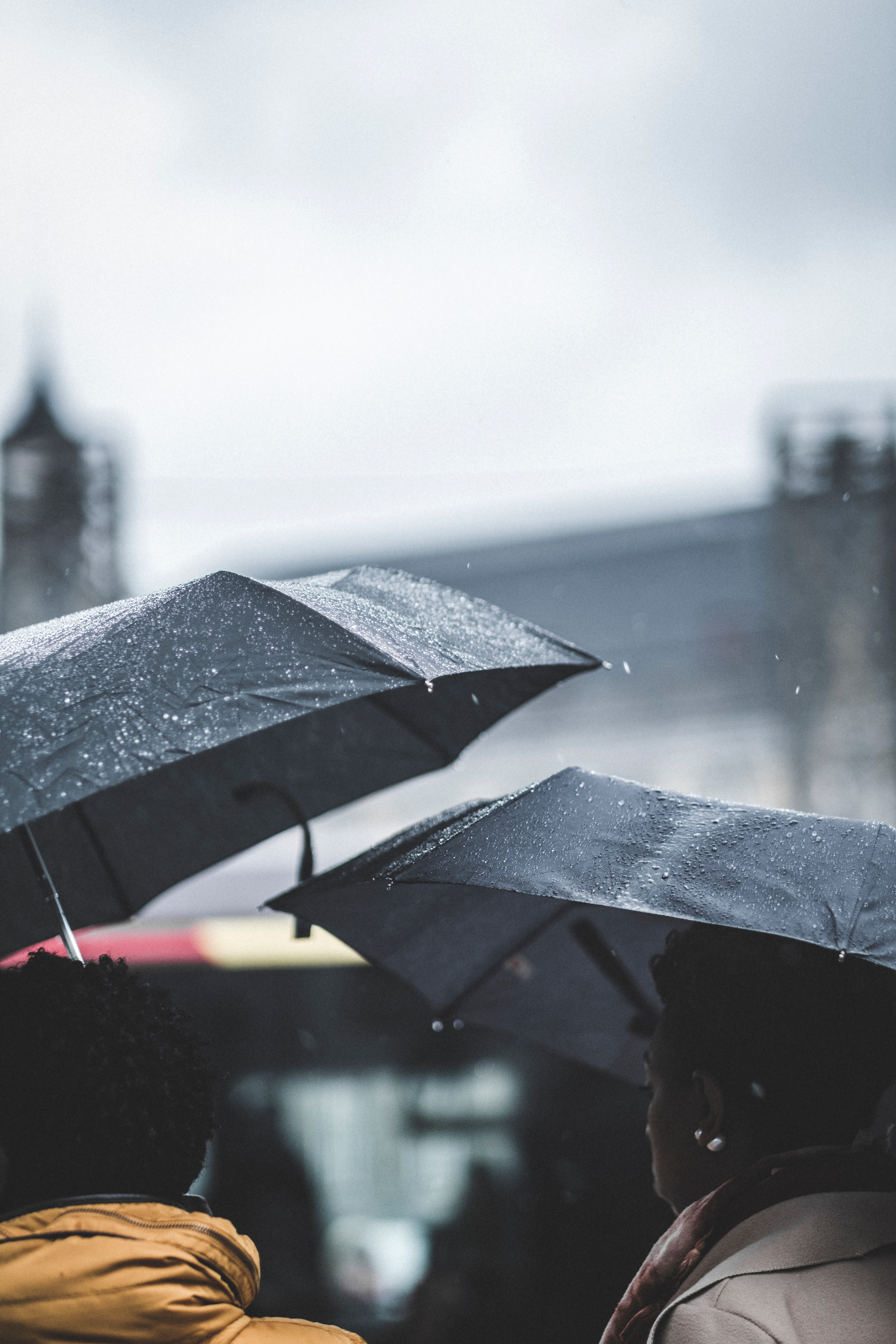
It’s always a good idea to start a conversation by mentioning the weather since everyone can share it.
-
- 天気がいいですね = Tenki ga iidesune. (It’s a nice day.)
It’s always a nice icebreaker to mention the weather, especially if it’s one beautiful sunny day. You can ask them what they will do or where they are going that day.
-
- 天気が悪いですね = Tenki ga warui desune. (The weather is not that fine.)
Even the bad weather can help you to start a conversation with somebody. Let’s say your back aches when the bad weather hits; you can enlarge your discussion.
-
- 雨ですね = Ame desune. (It’s raining.)
You might have this kind of conversation under some store roof with a stranger. You are lucky if you happen to be there with someone you like, just like some scene you saw in a movie;)
-
- 風が強いですね = Kaze ga tsuyoi desune. (We have strong wind.)
You may not have many chances to say this, but it’s good to know how you tell them in Japanese, right?
-
- めちゃめちゃ暑いですね = Mechamecha atsui desune. (It’s scorching hot, isn’t it?)
We’ve heard this a lot in the last summer as we’ve had many days over 30 degrees Celcius. “Mecha mecha” means “badly, substantially, considerably.” You can say, “Mecha mecha oishii (delicious)!” or “Mecha mecha tsukareta! (tired)”.
4. Condition of people (人の状態 = Hito no joutai) – Useful Japanese Phrases

-
- This is the fundamental one you want to remember, and you can say it at any time of the day.
-
- お元気ですか = Ogenki desuka? (How are you?)
It’s a very basic one. When you get closer to that someone, you can say, “Genki?”.
-
- おひさしぶりです = Ohisashiburi desu. (Long time no see.)
This one again, if that someone is your friend you haven’t seen for a while, you can say “Hisashiburi.” Then you would say, “Genki shiteta?” (Have you been doing well?)
-
- 気分がよくない = Kibun ga yokunai. (I’m not feeling well)
I don’t think you have many chances to use this phrase, but let’s say you are on a train and start to feel something is wrong with you, you can say to a station clerk or even to a stranger so they can guide you to a room where you can rest.
-
- 眠いです = Nemui desu.(I’m sleepy.)
- 疲れた = Tsukareta. (I’m tired.)
Working full-time makes you tired and sleepy, I assume.
-
- わくわくする・ワクワクする! = Waku waku suru! (I’m excited!)
What makes you “Waku waku”? Having something that makes you wakuwaku is essential in life. Really. It can be someone, something, some situation, anything!
-
- つまらない = Tsumaranai (I’m bored.)
If you say “Watashi wa Tsumaranai,” it can mean two things. One, you’re saying you’re bored with a situation or anything boring you. Two, you’re saying you’re a boring person. So, either way, you may want to spare using this phrase.
-
- 悲しい = Kanashii (I feel sad.)
- 寂しい = Sabishii・Samishii (I’m lonely.)
- 怒っている = Okotteiru (I’m angry.)
I hope you don’t have situations like these too often.
-
- お腹が空いた = Onaka ga suita (I’m hungry.)
You can say Onaka ga suita no de, nanika tabetai (Since I’m hungry, I wanna have something to eat). When you get full, you say, “Onaka ga ippai desu,” which means your stomach is full.
-
- 喉が乾きました Nodo ga kawakimashita. (I’m thirsty.)
You’re thirsty, so you want to drink something. You can say “Nanika nomitaidesu” (I like to drink something).
5. Features of people (人の特徴 = Hito no tokucho)- Useful Japanese Phrases

-
- 明るい = Akarui (Cheerful)
- 優しい = Yasashii (Gentle)
Perhaps these two features are the most appreciated ones in Japan. You can be clever, you can be dumb, but you should be cheerful and gentle. People will like you anyway.
-
- 親切 = Shinsetsu (Kind)
This one is highly appreciated as well in Japan. Being kind to others shows your ability to recognize the situation and what someone needs, which makes a better society.
-
- 頭がいい = Atama ga ii (intelligent)
- 賢い = Kashikoi (Clever)
Being intelligent and clever sounds similar, but they have different meanings. But we are not into these differences, remember no one would be offended having these compliments.
-
- かっこいい = Kakkoii (Good-looking, cool)
Any man or boy would appreciate this term.
-
- 厳しい = Kibishii (Strict)
I had a very strict teacher and I didn’t like him at all at first. However, I came to appreciate his strictness on a study that benefited me in forming the mind of research.
-
- 可愛い = Kawaii (Lovely)
It’s one of the most used words in describing kids, boys, and girls.
-
- 柔軟 = Juunan (flexible)
Most of the time, being clever and flexible come together.
6. Shopping (買い物 = Kaimono) – Useful Japanese Phrases

-
- これを見せてください = Kore o misete kudasai. (Could you show that stuff to me?)
When you find something that interests you, you ask the shop clerk to show that to you.
-
- 試着してもいいですか? = Shichaku shitemo iidesuka? (May I try this on?)
When you want to try on some clothes, you ask the clerk this way, and they will show you to the fitting room. Always try them
since Japanese clothes tend to be smaller than US/European ones.
-
- ___はありますか? = ___ wa arimasuka? (Do you have ___?)
When you have a specific product on your mind, you can ask her/him if they have in their store.
-
- これをください = Kore o kudasai. (I’ll take this one.)
Once you decide what you will buy, you can say this by pointing at the product so that the clerk will show you to the register for your purchase.
-
- いくらですか? = Ikura desuka? (How much is this?)
You can point to the product you want to know the price. When you want to know where multiple products are, you can ask her/him “Zennbu de ikuradesuka?” (How much are they all together?).
- クレジットカードは使えますか? = Kurejitto kaado wa tsukaemasuka? (Can I use a credit card?)
You always want to make sure before you make a purchase. There are many places you can’t use a credit card in Japan. Cash is STILL king.
7. Conversation with friends (友達との会話 = Tomodachi tono kaiwa) – Useful Japanese Phrases

It is much easier and more fun to talk in Japanese once you have a Japanese native friend. Below are practical ones to get to know each other more or to have a small talk.
-
- 週末はどうでしたか? = Shumatsu wa doudeshitaka? (How was your weekend?)
It’s nice to talk to your Japanese co-worker about their weekend, and you may find something new in them.
-
- 週末は家族と山登りに行きました = Shumatsu wa kazoku to yamanobori ni ikimashita. (I climbed the mountain with my family on the weekend.)
- 週末は友人とドライブに行きました = Shumatsu wa yuujin to doraibu ni ikimashita. (We went for a drive with my friends.)
These two are just examples of the answers to the above question. You might have watched some movie (映画を見た = Eiga o mita), visited your parents (両親を訪ねた = Ryoshin o tazuneta), or had a wonderful dinner with your partner (パートナーと素敵な夕食をとった = Partner to sutekina yushoku o totta).
-
- ___について何か知ってる? = ___ ni tsuite nanika shitteru? (Do you happen to know about ___?)
- ___についてどう思う? = ___ ni tsuite dou omou? (What do you think of ___?)
There will be chances to ask your friend’s opinion about something.
-
- ___と思う = ___to omou (I think ___.)
- あまりわからないけど___と思う = Amari wakaranaikedo ___ to omou (I have no idea about that, but I assume___)
When you’re not sure about what you’ve asked but have some assumption or suggestion, you can use the above expression.
8. Asking someone out (誘う = Sasou) – Useful Japanese Phrases

I know it may sound a bit odd to add this section here. But this is very important when you make friends with someone new, so I’ve included some useful phrases to ask someone out.
-
- 明日は何をしていますか? = Ashita wa nani o shiteimasuka? (What is your plan for tomorrow?)
This is not a direct asking-out, but a nice starter. If someone that you want to go out with has a specific plan, wait for another opportunity. Your chance is here if he/she says they don’t have any solid plan.
-
- 一緒にランチはどうですか? = Issho ni ranchi wa doudesuka? (How about having lunch together?)
Very polite way to ask someone to have lunch together.
-
- お酒は好きですか? = Osake wa sukidesuka? (Do you like to drink?)
- 飲みに行きませんか? = Nomi ni ikimasenka? (Why don’t we go for a drink?)
These two phrases are helpful if you or someone like drinking. But it’s not always the case.
-
- いつお休みですか? = Itsu oyasumi desuka? (When you’re off?)
It’s always safe to ask them when they’re available and ask politely to go out with them.
-
- 休みには何をしますか? = Yasumi ni wa nani o shimasuka? (What do you do when you are off?)
- あなたの好きな___は何ですか? = Anata no soukina ___ wa nandesuka? (What’s your favorite ___?)
You can put any noun in ___ and ask the other party’s favorite food or place, book, or subject.
-
- お茶しませんか? = Ocha shimasenka? (Why don’t we have some tea?)
This might be the best one to ask someone out. Why not have a cup of coffee or two?
So now you can have a small talk with a Japanese native, which gives you more confidence in learning Japanese and the motivation to learn more. Have you used any of them in actual conversation? You don’t find the phrase you want to use here? Let us know the phrases and expressions you want to say in the comment.
Related Article
Best Way to Learn Japanese on Your Own: Effective Mindset and Tools


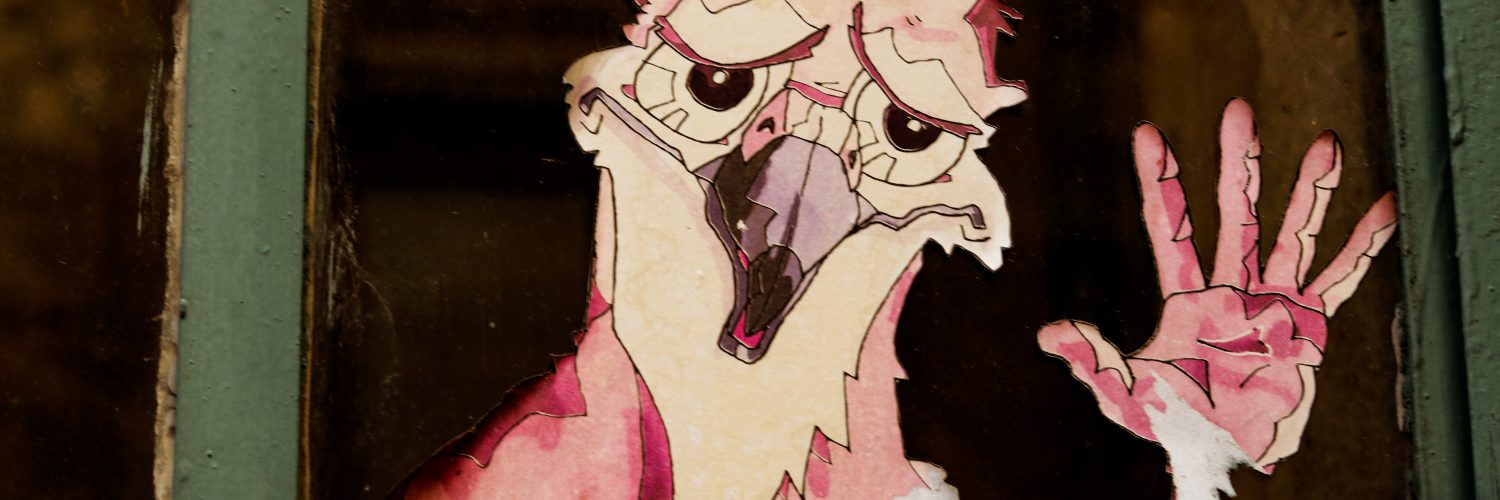
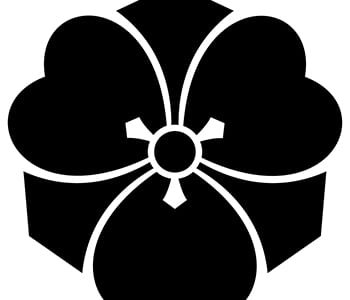
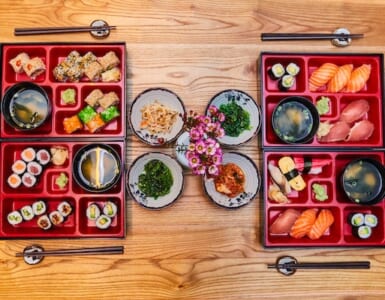
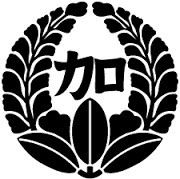


Add comment